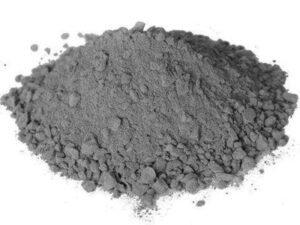Address
Building 1, Zone 1, Greenland Binhu International City, Zhengzhou, Henan, China
Work Hours
Monday to Friday: 9AM - 7PM
Weekend: 10AM - 6PM
Address
Building 1, Zone 1, Greenland Binhu International City, Zhengzhou, Henan, China
Work Hours
Monday to Friday: 9AM - 7PM
Weekend: 10AM - 6PM
There are many types of unshaped refractory materials. According to different raw materials and application fields, they can be roughly divided into the following categories:

Definition: It is a mixture of refractory aggregates, binders and other auxiliary materials. It can be cast and shaped after adding water and stirring.
Use: It is widely used in the lining of furnace linings, kilns, high-temperature equipment, etc., especially suitable for equipment with complex shapes.
Features: Simple construction and flexible molding, but it is necessary to select the appropriate raw material ratio according to different use environments.
Refractory castables can be divided into the following categories according to the material:
High aluminum castables: bauxite is used as the main raw material, with high refractoriness, suitable for high temperature, strong acid or strong alkali environment.
Heavy castables: Contains more heavy minerals, such as corundum, chromite, etc., and has good wear resistance.
Refractory cement castables: Cement is used as the main binder, and the construction is simple, but the refractoriness is low.
Definition: It is composed of fine particles, binders, etc. and is sprayed on the surface of the equipment through spraying equipment.
Use: It is used for repairing and reinforcing the inner surface of the furnace, the lining of the kiln, etc., especially suitable for large-scale construction.
Features: It is fast to construct, suitable for repair work, and can form a dense and compact coating.
Definition: After mixing powder, fine particles, binders, etc., it is applied to the joints between refractory bricks to help the bricks be fixed more firmly.
Use: It is mainly used to fill the gaps in brick-built furnace bodies and connect the bricks.
Features: It has good adhesion and strength, and is resistant to high temperature and high pressure.
Definition: Materials made of refractory fiber as the main raw material, commonly used such as fiberboard, blanket, cloth, etc.
Use: It is used for furnace linings, insulation layers, etc., has good thermal insulation properties, and is suitable for environments with large temperature fluctuations.
Features: Lightweight, low thermal conductivity, excellent thermal insulation performance, suitable for high temperature insulation.
Definition: Mainly used in places where both fire resistance and wear resistance are required, with high mechanical strength and wear resistance.
Use: Widely used in steel, mining, mechanical processing and other industries.
Features: Good wear resistance, impact resistance and high temperature strength.
Definition: Usually mixed with refractory powder, cement, binder, etc., and constructed after stirring.
Use: Used for bonding between refractory bricks, enhancing structural strength and preventing thermal cracks.
Features: Easy to construct, suitable for equipment with large areas and complex shapes.